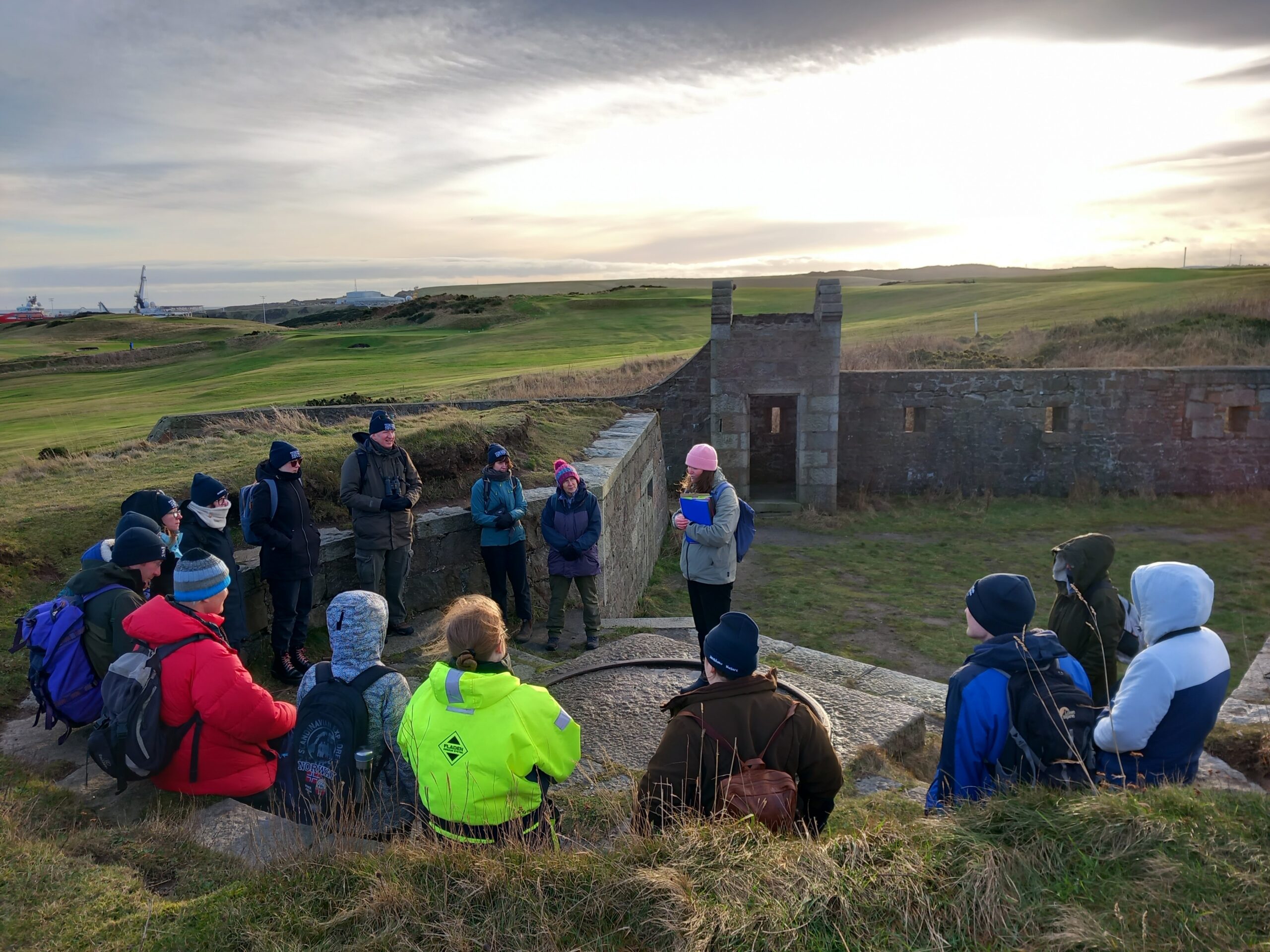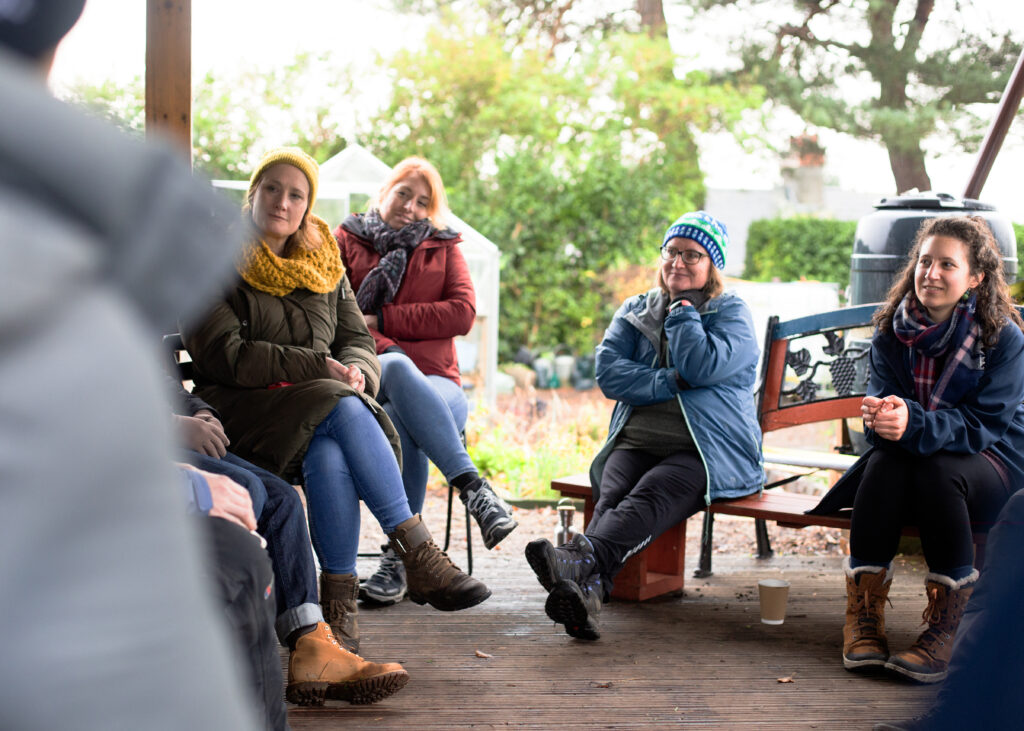Whilst exploring ideas that are good for your local community and your local nature, you may find that others disagree with your ideas or your approach. It’s not uncommon for other members of the same community to have different priorities – and that’s ok! Knowing how to successfully navigate the more difficult parts of these conversations will ensure that you can keep moving forward.
What is a healthy relationship?
Healthy relationships are based on patience, open and honest dialogue, active listening, empathy, genuine communication, and mutual respect.
These should be at the forefront of your mind when building connections with your community, and especially if you encounter resistance to your ideas.
Community consultations are vital to build and maintain successful projects for positive change in nature. If you’re beginning your journey into community organising, it could be helpful to read our guide on how to engage your community.
When you’re meeting with other members of your community to discuss your project, in order to engage with yours and others’ idea, it’s important that everyone present feels heard, seen and respected.
Make it fair
It can feel like negative opinions are the loudest and most memorable. If you do receive negative responses to your ideas these can often overwhelm any of the positive ones you receive. Therefore, it’s important to correct this imbalance and amplify the positive voices as well, ensuring everyone in your group has an equal opportunity to speak and be listened to.
Change takes time
Being patient is essential. Expecting people to change their opinion of something overnight is unrealistic, especially if the change seems too drastic, quick or difficult for them. Your neighbourhood isn’t just yours, it belongs to the whole community and changing something in it, big or small, might be overwhelming for some. People can often crave familiarity, comfort and certainty, so their resistance to a new idea may be a knee-jerk response to something unfamiliar to them. Giving them time and space to process information can make a lot of difference.
Make the change easier
Change is rarely easy but there are a few things you can do to make the transition go more smoothly.
The process of change
Describe the process of the change, what support there will be during this transitional period, and how you can help others make the change. If we use an example here of wanting to create a community garden, you might explain each step you can all take together to reach the end goal. Highlight that the route to the end-goal is achievable and isn’t as hard as they might imagine.
What will the change mean
Describe what the change will mean, and what the benefits are. For example, a community garden could provide fresh vegetables for local people, serve as an educational resource for schools and offer a greenspace in an otherwise built-up area, and attract new wildlife. It would also provide opportunities for locals to learn new skills, expand their social circle by getting to know their neighbours, start a new hobby, get some exercise, or simply just engage with nature.
Reasons for change
Discuss how and why you feel the current situation needs to change. This could be as simple as highlighting the opposite of the above points – for example, there not being anywhere for people to connect with nature in your neighbourhood, or the lack of social opportunities available to people. Perhaps a disused and run-down area attracts anti-social behaviour and could otherwise be transformed into a park or other greenspace. Think about your own reasons for wanting this change and ask others to share their own opinions.
Build trust
This is essential when getting your community on-board with your ideas. If it feels like others are getting overwhelmed by the size of the change or the full extent of your plans, focus on the initial achievable goals.
You can do this by building momentum for your project gradually. Moving too fast towards a change can create stress and apathy. Make the change gradually, one small, realistic and achievable step at a time, and set milestones that can be celebrated. Initially the journey might feel slow and take more time and energy, but once people get comfortable with the process you can build on this and increase momentum.
Take care of yourself
It can take a lot of mental and emotional energy to support others, so it’s important to look after yourself and your mental wellbeing as well. If you feel you’re becoming overwhelmed, talk to someone. If you have others working on the project with you then share the responsibilities. As a community organiser, you can easily slip into the role of wanting to manage everything, but this can be a huge burden for one person to bear. If we’re stressed, we can’t affect positive change in others so make sure to prioritise your own physical and mental health.


Useful links
- Turning Moment provide very helpful mediation, facilitation and training specifically around conflict resolution.
- Community-Led Alliance has written ‘7 steps for solving conflicts in your community’ which looks at why conflict resolution skills can be so important and some strategies you can use.
- Community Door looks at various techniques and strategies to manage conflict resolution. Whilst these are focused on internal conflicts in business, they are transferable to community organising as well.
- Scottish Action for Mental Health (SAMH) has some useful tools, tips and guides on how to improve your wellbeing and stay mentally health, including their ‘5 Ways to Better Mental Health’ guide. The Mental Health Foundation also lists some useful contacts you can reach out to for support should you need it.
- If you’d like to learn more about working with your community to promote positive action for nature, you can join our free online Pioneers Programme course. Find out more about the programme and register for free here.
